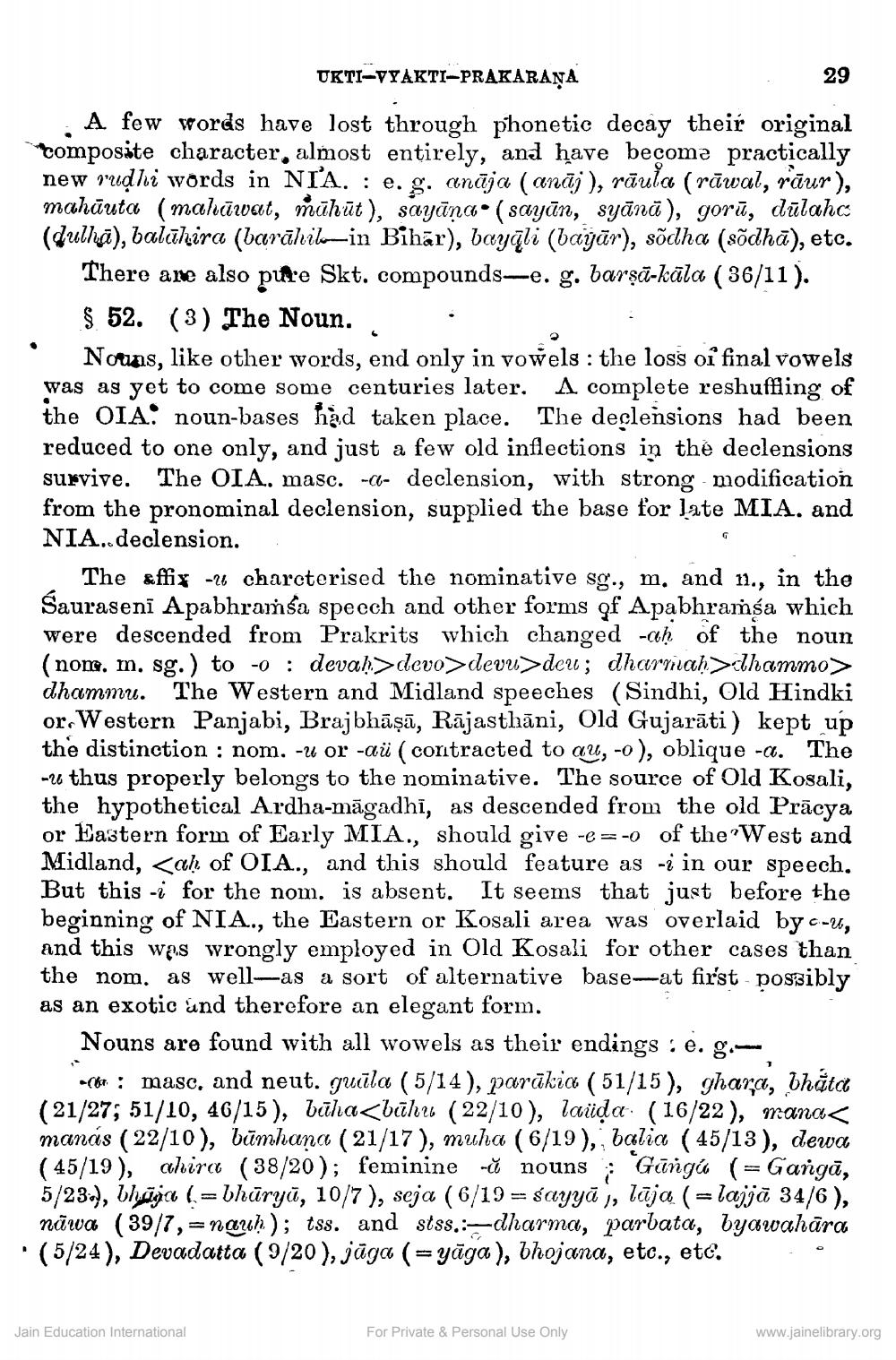________________
UKTI-VYAKTI-PRAKARANA
29 . A few words have lost through phonetic decay their original composite character, almost entirely, and have become practically new rudhi words in NIA. : e. g. anāja (anaj), rāula (rāwal, rāur), mahāuta (mahūwat, māhūt), sayāna. (sayān, syānā), gorū, dūlaho (dulha), balūhira (barāhilin Bihar), bayąli (bajār), sõdha (sõdhā), etc.
There are also putte Skt. compounds-e. g. barşā-kāla ( 36/11). $ 52. (3) The Noun..
Nouns, like other words, end only in vowels : the loss oỉ final vowels was as yet to come some centuries later. A complete reshuffling of the OIA: noun-bases hàd taken place. The declensions had been reduced to one only, and just a few old inflections in the declensions survive. The OIA. masc. -(6- declension, with strong - modification from the pronominal declension, supplied the base for late MIA. and NIA..declension. .
The Effix -26 charcterised the nominative sg., m. and 11., in the Sauraseni Apabhraṁša speech and other forms of Apabhramsa which were descended from Prakrits which changed -ch of the noun (nome, m. sg.) to -0 : devah>devo>devu>deu; dharrah><thammo> dhammu. The Western and Midland speeches (Sindhi, Old Hindki or Western Panjabi, Brajbhāṣā, Rūjasthāni, Old Gujarāti) kept up the distinction : nom. -4 or -aü (contracted to au, -o ), oblique -a. The -2 thus properly belongs to the nominative. The source of Old Kosali, the hypothetical Ardha-māgadhī, as descended from the old Prācya or Eastern form of Early MIA., should give -e =-o of the West and Midland, <ah of OIA., and this should feature as -i in our speech. But this -¿ for the nom. is absent. It seems that just before the beginning of NIA., the Eastern or Kosali area was overlaid by c-u, and this was wrongly employed in Old Kosali for other cases than the nom. as well-as a sort of alternative base-at first possibly as an exotic and therefore an elegant form.
Nouns are found with all wowels as their endings : e. g.
(6 : masc, and neut. gucla (5/14), parākia ( 51/15), ghara, chấta (21/27; 51/10, 46/15), būha<bālu (22/10), laida (16/22), manas mands (22/10), būmhana (21/17), muha (6/19), balia ( 45/13), dewa ( 45/19), ahira (38/20); feminine ă nouns ; Güngú (= Gangā, 5/230), Bhdjco b = bhāryā, 10/7), seja (6/19 = sayyā ,, lāja ( =lajjā 34/6), nāwa (39/7,= nauh); tss. and stss.: - dharma, parbata, byawahāra (5/24), Devadatta (9/20 ), jāga (=yāga), bhojana, etc., etc.
Jain Education International
For Private & Personal Use Only
www.jainelibrary.org




